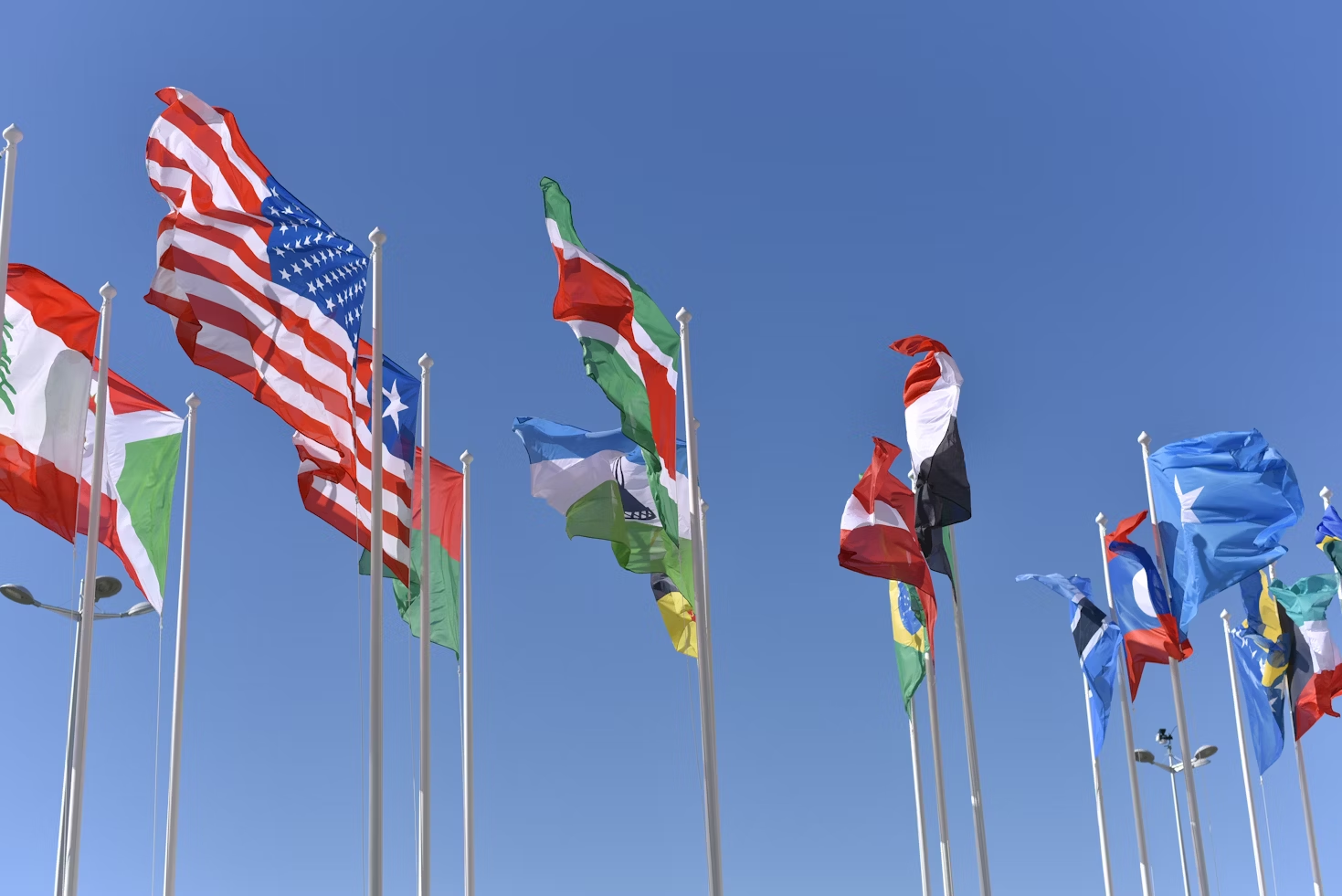The controversial nature of blockchain technology is not a strange concept, and over the years, the innovation has met as much criticism as support. 2023 saw many regulatory hurdles, and some cryptocurrencies are still fighting battles with the Securities and Exchange Commission (SEC). There have also been situations where countries have banned the use of crypto among citizens.
However, despite these challenges, blockchain is a leading innovation, and the global market was valued at $17 billion as of 2023, showing its growth. Today, a handful of countries have contributed heavily to this built-up of success. Here’s a look at the best and how they lead the way.
United States
The first country on our list is none other than the United States. It might seem contradictory since many crypto assets were caught in crossfires with the US SEC last year. However, there have also been many deeds to promote this technology’s use. Data from Finances Online reveals the country accounts for 46% of the global blockchain market growth in 2020.
In addition, nearly 48% of blockchain start-ups were founded in the US. The country has been playing a significant role in the growth we see in this industry today, and the signs show a high possibility for so much more in the future. Some notable companies in the country that have impacted this are Coinbase, IBM Corp, and Microsoft Corp.
Singapore

Singapore’s investment market is one of the most accommodating in Asia. A report from Statista reveals that in 2023, blockchain and Web3 companies account for the largest share of fintechs in Singapore.
Further news from this source shows the government’s efforts in attracting key players from the sector into its investment market, which has boosted the country’s economy. Another noteworthy fact here is how Singapore has maintained its position as one of the biggest smart cities in the world. Its considerably increasing number of blockchain companies, crypto trading platforms, and ICOs are viable reasons behind this positive trend.
United Kingdom
The UK government is another body that has been proactive in fostering the development of blockchain technology through active integration. Companies in different sectors use innovation creatively, from logistics to finance to third-party transactions. In 2018, the global logistics company DHL partnered with an IT service company to develop a blockchain-based serialization prototype for tracking pharmaceuticals.
Considering this tech’s capacity to process more transactions in split seconds, there is a high chance of increasing efficiency and reducing costs. The Royal Bank of Scotland (RBS) has also been experimenting with this innovation, building a hyperledger digital wallet and working on its in-house cryptocurrency.
Hong Kong
Hong Kong is one of the countries at the forefront of innovative city development. As the global financial center it is, it is no surprise that the country is leading the way in blockchain adoption. Several notable government initiatives have been, such as the Special Administrative Government’s (SAR) plan to launch hundreds of digital initiatives for innovative city development between 2024 and 2025.
One is the electronic issuance and verification initiative for licenses and certificates. In February 2023, the country issued an inaugural HK$ 800 million tokenized green bonds. The country’s Monetary Authority (HKMA) has also actively explored the possibility of Central Bank Digital Currencies (CBDCs), which could be a game changer for cross-border retail payments and transaction processes.
China

Although China has imposed a total ban on cryptocurrencies since 2021, its government has shown a more favorable interest in the technology behind these assets. In recent years, the country has encouraged innovation and instigated policies to promote its practicality for citizens. One of the most recent was the announcement that blockchain innovation could be used to identify the real name identity of citizens through a decentralized approach.
The innovation is called RealDID, and it is a work in progress to enhance credibility and public supervision in the country’s social media platforms. Such developments lead people to question whether the crackdown on crypto assets could be coming to its rail end. Big companies in the country, like Bitmain, Hyperchain, Alibaba, and Baidu, are vital contributors and benefactors of China’s increasing interest in Blockchain adoption.
Germany
Germany’s defined regulatory framework for blockchain-related affairs is one of the factors putting it at the forefront of recent developments. Clarity has been favorable for attracting investors, companies, and profitable initiatives.
In addition, the government is committed to supporting research and active blockchain projects. Researchers are exploring initiatives to assess the potential impact of this innovation in sectors like finance, supply chain, and healthcare. Germany’s third-largest state-owned bank recently joined the list of financiers experiencing this technology, with plans to launch its first-ever digital bond.
Global Contribution of Leading Blockchain Nations
These countries we’ve listed are making attempts to integrate new world tech into their day-to-day narrative. While these steps are more of selfish interests and ventures towards their development, collectively, they’ve been a significant driving force behind blockchain adoption. The global crypto asset ownership rate is at an average of 6.8%, and there are 560 million of the asset’s users worldwide, spread across many of the countries we’ve listed. The potential of this technology goes beyond cryptocurrencies and digital assets, and some countries are ready to explore these possibilities to the fullest.

